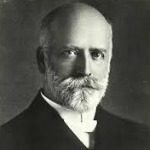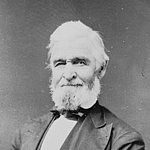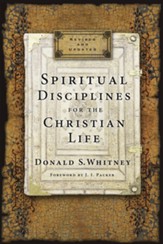Quotes about Bible-Meditation
If, by this means of biblical meditation, thou dost not find an increase of all thy graces, and dost not grow beyond the stature of common Christians, and art not made more serviceable in thy place, and more precious in the eyes of all discerning persons; if thy soul enjoy not more communion with God, and thy life be not fuller of comfort, and hast it not readier by thee at a dying hour: then cast away these directions, and exclaim against me forever as a deceiver.
The Practical Works of Richard Baxter: Select Treatises, Baker Book House, 1981, p. 90.
Disciplined meditation on Scripture helps us focus on God. Meditation helps us view worship as a discipline. It involves our mind and understanding as well as our heart and affections. It works Scripture through the texture of the soul. Meditation helps prevent vain and sinful thoughts (Matthew 12:35) and provides inner resources on which to draw (Psalm 77:10-12), including direction for daily life (Proverbs 6:21-22). Meditation fights temptation (Psalm 119:11, 15), provides relief in afflictions (Isaiah 49:15-17), benefits others (Psalm 145:7), and glorifies God (Psalm 49:3).
Meditation is a help to knowledge; thereby your knowledge is raised. Thereby your memory is strengthened. Thereby your hearts are warmed. Thereby you will be freed from sinful thoughts. Thereby your hearts will be tuned to every duty. Thereby you will grow in grace. Thereby you will fill up all the chinks and crevices of your lives, and know how to spend your spare time, and improve that for God. Thereby you will draw good out of evil. And thereby you will converse with God, have communion with God, and enjoy God. And I pray, is not here profit enough to sweeten the voyage of your thoughts in meditation?
As it is the sister of reading, so it is the mother of prayer. Though a man’s heart be much indisposed to prayer, yet, if he can but fall into a meditation of God, and the things of God, his heart will soon come off to prayer… Begin with reading or hearing. Go on with meditation; end in prayer… Reading without meditation is unfruitful; meditation without reading is hurtful; to meditate and to read without prayer upon both is without blessing.
The word meditate as used in the Old Testament literally means to murmur or to mutter and, by implication, to talk to oneself. When we meditate on the Scriptures we talk to ourselves about them, turning over in our minds the meanings, the implications, and the applications to our own lives.
The Practice of Godliness, NavPress, 1996, p. 43, www.navpress.com, Used by Permission. Get this book!
Usually we think of methods of intake as falling into four categories – hearing the Word taught by our pastors and teachers (Jeremiah 3:15), reading the Bible ourselves (Deuteronomy 17:19), studying the Scriptures intently (Proverbs 2:1-5), and memorizing key passages (Psalm 119:11). All of these methods are needed for a balanced intake of the Word… [But] we must do more than hear, read, study, or memorize Scripture. We must [also] meditate on it (Joshua 1:8).
Copied from The Pursuit of Holiness by Jerry Bridges, © 1996, p. 99. Used by permission of NavPress – www.navpress.com. All rights reserved. Get this book!
To meditate on the Scriptures is to think about them, turning them over in our minds, and applying them to our life’s situations… The objective of our meditation is application – obedience to the Scriptures.
Copied from The Pursuit of Holiness by Jerry Bridges, © 1996, p. 99-100. Used by permission of NavPress – www.navpress.com. All rights reserved.
As you read or study the Scriptures and meditate on them during the day, ask yourself these three questions:
1. What does this passage teach concerning God’s will for a holy life?
2. How does my life measure up to that Scripture; specifically where and how do I fall short? (Be specific; don’t generalize).
3. What definite steps of action do I need to take to obey?
Copied from The Pursuit of Holiness by Jerry Bridges, © 1996, p. 101. Used by permission of NavPress – www.navpress.com. All rights reserved.
Remember that it is not hasty reading, but serious meditation on holy and heavenly truths, that makes them prove sweet and profitable to the soul. It is not the mere touching of the flower by the bee that gathers honey, but her abiding for a time on the flower that draws out the sweet. It is not he that reads most, but he that meditates most, that will prove to be the choicest, sweetest, wisest and strongest Christian.
One of the most valuable aids to meditation is Scripture memorization. In fact, when I encounter someone who is battling discouragement or depression, I often ask two questions: “Are you singing to the Lord?” and “Are you memorizing Scripture?” These two exercises are not some magical formula to make all our problems go away, but they do have incredible power to change our perspective and attitude toward the issues we are facing.
As you read, pause frequently to meditate on the meaning of what you are reading. Absorb the Word into your system by dwelling on it, pondering it, going over it again and again in your mind, considering it from many different angles, until it becomes part of you.
By meditating on Scripture you are transformed into the person God intends you to be. Meditation is a blend of your words to God and His Word to you; it is loving conversation between you and God through the pages of His Word. It is absorption of His words into your mind by prayerful contemplation and concentration.
Returning to Your First Love, Christian Communicators Worldwide, www.CCWtoday.org. Used by Permission.
Meditation is an expression of love, and delight is its reward… It defies our neatly and logically built-up systems and bursts forth with a new entity called delight.
The Joy of Truth by Ajith Fernando taken from The Supremacy of Christ by Ajith Fernando, copyright 1995, Crossway Books, a division of Good News Publishers, Wheaton Illinois 60187, www.crosswaybooks.org, p. 119.
It is easier to go six miles to hear a sermon, than to spend one quarter of an hour in meditating upon it when I come home.
Meditation is a middle sort of duty between the word and prayer, and hath respect to both. The word feedeth meditation, and meditation feedeth prayer. These duties must always go hand in hand; meditation must follow hearing and precede prayer. To hear and not to meditate is unfruitful. We may hear and hear, but it is like putting a thing into a bag with holes… It is rashness to pray and not to meditate. What we take in the word we digest by meditation and let out by prayer. These three duties must be ordered that one may not jostle out the other. Men are barren, dry, and sapless in their prayers for want of exercising themselves in holy thoughts.
Continued meditation brings great profit to the soul. Passant and transient thoughts are more pleasant, but not so profitable. Deliberate meditation is of most use because it secures the return of the thoughts.
A Puritan Golden Treasury, compiled by I.D.E. Thomas, by permission of Banner of Truth, Carlisle, PA. 2000, p. 185.
The end of study is information, and the end of meditation is practice, or a work upon the affections. Study is like a winter sun, that shines, but warms not: but meditation is like a blowing upon the fire, where we do not mind the blaze, but the heat. The end of study is to hoard up truth; but of meditation to lay it forth in conference or holy conversation.
A Puritan Golden Treasury, compiled by I.D.E. Thomas, by permission of Banner of Truth, Carlisle, PA. 2000, p. 183.
The most important thing I had to do was to read the Word of God and to meditate on it. Thus my heart might be comforted, encouraged, warned, reproved, and instructed.
The Autobiography of George Muller, 1984, p. 139. All quotations taken from books published by Whitaker House are used with permission of the publisher. Whitaker House books are available at Christian bookstores everywhere. Get this book!
We may profitably meditate, with God’s blessing, although we are spiritually weak. The weaker we are, the more meditation we need to strengthen our inner man. Meditation on God’s Word has given me the help and strength to pass peacefully through deep trials.
The Autobiography of George Muller, 1984, p. 140. All quotations taken from books published by Whitaker House are used with permission of the publisher. Whitaker House books are available at Christian bookstores everywhere. Get this book!
It often astonishes me that I did not see the importance of meditation upon Scripture earlier in my Christian life. As the outward man is not fit for work for any length of time unless he eats, so it is with the inner man. What is the food for the inner man? Not prayer, but the Word of God – not the simple reading of the Word of God, so that it only passes through our minds, just as water runs through a pipe. No, we must consider what we read, ponder over it, and apply it to our hearts.
The Autobiography of George Muller, 1984, p. 139. All quotations taken from books published by Whitaker House are used with permission of the publisher. Whitaker House books are available at Christian bookstores everywhere.
To read the Bible and not to meditate was seen as an unfruitful exercise: better to read one chapter and meditate afterward then to read several chapters and not to meditate. Likewise to meditate and not to pray was like preparing to run a race and never leaving the starting line. The three duties of reading Scripture, meditation, and prayer belonged together, and though each could be done occasionally on its own, as formal duties to God they were best done together (Peter Toon).
The person who never meditates with delight on the glory of Christ in the Scriptures now will not have any real desire to see that glory in heaven. What sort of faith and love do people have who find time to think about many other things but make no time for meditating on this glorious subject?
Meditation on the Glory of Christ, 1684, ch. 3. Get this book!
If I have observed anything by experience, it is this: a man may take the measure of his growth and decay in grace according to his thoughts and meditations upon the person of Christ, and the glory of Christ’s Kingdom, and of His love.
A Puritan Golden Treasury, compiled by I.D.E. Thomas, by permission of Banner of Truth, Carlisle, PA. 2000, p. 184.
Knowing that God’s way to the human heart (the will) is via the human head (the mind), the Puritans practiced meditation, discursive and systematic, on the whole range of biblical truth as they saw it applying to themselves. Puritan meditation on Scripture was modeled on the Puritan sermon; in meditation, the Puritan would seek to search and challenge his heart, stir his affections to hate sin and love righteousness, and encourage himself with God’s promises.
Why We Need the Puritans by J.I Packer taken from A Quest for Godliness by J.I. Packer, copyright 1990, Crossway Books, a division of Good News Publishers, Wheaton Illinois 60187, www.crosswaybooks.org. Page 24.
Meditation upon the Word of God is one of the most important of all the means of grace and growth in spirituality, yea there can be no true progress in vital and practical godliness without it. Meditation on Divine things is not optional but obligatory, for it is something which God has commanded us to attend unto.
Gleanings in Joshua, Moody, 1964, p. 40.
Get this book!
The challenge before us then is not merely to do what God says because He is God, but to desire what God says because He is good. The challenge is not merely to pursue righteousness, but to prefer righteousness. The challenge is to get up in the morning and prayerfully meditate on the Scriptures until we experience joy and peace in believing “the precious and very great promises” of God (Rom. 15:13; 2 Peter 1:4). With this joy set before us the commandments of God will not be burdensome (1 John 5:3) and the compensation of sin will appear too brief and too shallow to lure us.
How Dead People Do Battle With Sin, Sermon, January 1, 1995, www.DesiringGod.org. Used by Permission.
Without meditation grace never thrives, prayer is languid, praise dull, and religious duties unprofitable. Yet to flesh and blood without divine grace this is an impossible duty. It is easier to take a journey of a thousand miles than to spend an hour in close, devout, profitable thoughts on divine things.
To be “renewed in the spirit of your mind” is not a point of enlightenment, but rather a continual process or gaining God’s perspective through meditating on His Word… As the great evangelist D. L. Moody used to say, “The only way to keep a broken vessel full is to keep the faucet running.”
Our age has been sadly deficient in what may be termed spiritual greatness. At the root of this is the modern disease of shallowness. We are all too impatient to meditate on the faith we profess… It is not the busy skimming over religious books or the careless hastening through religious duties which makes for a strong Christian faith. Rather, it is unhurried meditation on gospel truths and the exposing of our minds to these truths that yields the fruit of sanctified character.
The highest science, the loftiest speculation, the mightiest philosophy, which can ever engage the attention of a child of God, is the name, the nature, the person, the work, the doings, and the existence of the great God whom he calls his Father. There is something exceedingly improving to the mind in a contemplation of the Divinity. It is a subject so vast, that all our thoughts are lost in its immensity; so deep, that our pride is drowned in its infinity. Other subjects we can compass and grapple with; in them we feel a kind of self-content, and go our way with the thought, “Behold I am wise.” But when we come to this master science, finding that our plumb line cannot sound its depth, and that our eagle eye cannot see its height, we turn away with the thought… “I am but of yesterday, and know nothing.” No subject of contemplation will tend to humble the mind, than thoughts of God.
Some people like to read so many chapters every day. I would not dissuade them from the practice, but I would rather lay my soul asoak in half a dozen verses all day than rinse my hand in several chapters. Oh, to be bathed in a text of Scripture, and to let it be sucked up into your very soul, till it saturates your heart! Set your heart upon God’s Word! Let your whole nature be plunged into it as a cloth into a dye!
It will not be enough for you to hear or read of Christ, you must do your own thinking and consider your Lord for yourselves. The wine is not made by gathering the clusters, but by treading the grapes in the wine vat, under the pressure the red juice leaves forth.
Meditation is the soul of religion… We ought, therefore, both for our own good and for the Lord’s honor to be much occupied with meditation, and that meditation should chiefly dwell upon the Lord Himself: it should be “meditation of Him.” For want of it much communion is lost and much happiness is missed.
Here are a few suggestions to help you get started [with Bible meditation].
1. Prepare. Issues of posture, time and place are secondary, but not unimportant. The only rule would be: do whatever is most conducive to concentration.
2. Peruse. Read, repeat the reading, write it out, then re-write it.
3. Picture. Apply your imagination and senses to the truth of the text. Envision yourself personally engaged in the relationship or encounter or experience of which the text speaks.
4. Ponder. Reflect on the truth of the Word; brood over the truth of the text; absorb it, soak it in, as you turn it over in your mind.
5. Pray. At some point take the truth as the Holy Spirit has illuminated it and pray it back to God whether in petition, thanksgiving, or intercession.
6. Personalize. Where possible, according to sound principles of biblical interpretation, replace proper names and proper pronouns with your own name.
7. Praise. Worship the Lord for who He is and what He has done and how it has been revealed in Scripture.
8. Practice. Commit yourself to doing what the Word commands. The aim of meditation is moral transformation.
Excerpted from: Pleasures Evermore: The Life-Changing Power of Knowing God by Sam Storms, © 2000, p. 205207. Used by permission of NavPress – www.navpress.org. All rights reserved. Get this book!
Meditation begins, but by no means ends, with thinking on Scripture. To meditate properly our souls must reflect upon what our minds have ingested and our hearts must rejoice in what our souls have grasped. We have truly meditated when we slowly read, prayerfully imbibe, and humbly rely upon what God has revealed to us in His Word – all of this, of course, in conscious dependence on the internal, energizing work of the Spirit.
Copied from: Pleasures Evermore: The Life-Changing Power of Knowing God by Sam Storms, © 2000, p. 186. Used by permission of NavPress – www.navpress.org. All rights reserved.
Meditation may take one of several forms, depending on the object upon which we focus our mental and spiritual energy:
1. Meditate on Scripture.
2. Meditate on creation.
3. Meditate on God and His works.
Copied from: Pleasures Evermore: The Life-Changing Power of Knowing God by Sam Storms, © 2000, p. 187-196. Used by permission of NavPress – www.navpress.org. All rights reserved.
Many are frightened because meditation has become something of a buzzword in New Age circles. But the differences between biblically based meditation and what we find in Eastern religions and the New Age movement are profound. Here are a few of them:
1. Unlike Eastern meditation, which advocates emptying the mind, Christian meditation call for is to fill our mind with God and His truth.
2. Unlike Eastern meditation, which advocates mental passivity, Christian meditation call on us to actively exert our mental energy.
3. Unlike Eastern meditation, which advocates detachment from the world, Christian meditation call for attachment to God.
4. Unlike Eastern meditation, which advocates visualization in order to create one’s own reality, Christian meditation call for visualization of the reality already created by God.
5. Unlike Eastern meditation, which advocates metaphysical union with “god,” Christian meditation calls for spiritual communion with God.
6. Unlike Eastern meditation, which advocates an inner journey to find the center of one’s being, Christian meditation calls for an outward focus on the objective revelation of God in Scripture and creation.
7. Unlike Eastern meditation, which advocates mystical transport as the goal of one’s efforts, Christian meditation calls for moral transformation as the goal of one’s efforts.
Copied from: Pleasures Evermore: The Life-Changing Power of Knowing God by Sam Storms, © 2000, p. 202-203. Used by permission of NavPress – www.navpress.org. All rights reserved.
Each time we surrender our minds to meditate on base and sordid objects their grip on our lives is intensified. To think we can decrease our affinity for sinful pleasure apart from a concentrated fixation on the spiritually sublime is simply delusional. (Phil. 4:8)
One Thing, Christian Focus, © Enjoying God Ministries, 2004, p.37. www.enjoyinggodministries.com. Used by Permission.
Meditation is simply talking to God about His Word with a desire that your life and those you pray for come into agreement with it.
A Journey to Victorious Praying, Moody Publishers, 2003, p. 84.
Get this book!
Prayer that is born of meditation upon the Word of God is the prayer that soars upward most easily to God’s listening ears.
Without doubt the mightiest thought the mind can entertain is the thought of God.
Without meditation the truths which we know will never affect our hearts… As a hammer drives a nail to the head, so mediation drives a truth to the heart… Read before you meditate. “Give attendance to readings” (1 Tim. 4:13). Then it follows, “meditate upon these things” (vs. 15). Reading doth furnish with matter; it is the oil that feeds the lamp of meditation. Be sure your mediations are founded upon Scripture. Reading without meditation is unfruitful; meditation without reading is dangerous.
The reason we come away so cold from reading the word is, because we do not warm ourselves at the fire of meditation.
I will conclude with that excellent saying of Bernard: “Lord, I will never come away from Thee without Thee.” Let this be a Christian’s resolution, not to leave off his meditations of God till he find something of God in him.
A Puritan Golden Treasury, compiled by I.D.E. Thomas, by permission of Banner of Truth, Carlisle, PA. 2000, p. 187.
Meditate on what you read (Psm. 199:15). The Hebrew word for “meditate” means to be intense in the mind. Meditation without reading is wrong and bound to err; reading without meditation is barren and fruitless.
The kind of meditation encouraged in the Bible differs from other kinds of meditation in several ways. While some advocate a kind of meditation in which you do your best to empty your mind, Christian meditation involves filling your mind with God and truth. For some, meditation is an attempt to achieve complete mental passivity, but biblical meditation requires constructive mental activity. Worldly meditation employs visualization techniques intended to “create your own reality.” And while Christian history has always had a place for the sanctified use of our God-given imagination in meditation, imagination is our servant to help us meditate on things that are true (Philippians 4:8). Furthermore, instead of “creating our own reality” through visualization, we link meditation with prayer to God and responsible, Spirit-filled human action to effect changes.
Spiritual Disciplines for the Christian Life, 1991, p. 47, Used by permission of NavPress – www.navpress.com. All rights reserved. For more information please see the website www.BibicalSpirituality.org. Get this book!
Meditation is deep thinking on the truths and spiritual realities revealed in Scripture for the purposes of understanding, application, and prayer. Meditation goes beyond hearing, reading, studying, and even memorizing as a means of taking in God’s Word.
Spiritual Disciplines for the Christian Life, 1991, p. 48, Used by permission of NavPress – www.navpress.com. All rights reserved. For more information please see the website www.BibicalSpirituality.org. Get this book!
Meditation is more than just riveted human concentration or creative mental energy. Praying your way through a verse of Scripture submits the mind to the Holy Spirit’s illumination of the text and intensifies your spiritual perception. The Bible was written under the Holy Spirit’s inspiration; pray for His illumination in your meditation.
Spiritual Disciplines for the Christian Life, 1991, p. 54, Used by permission of NavPress – www.navpress.com. All rights reserved. For more information please see the website www.BibicalSpirituality.org. Get this book!
Meditation is the missing link between Bible intake and prayer. The two are often disjointed when they should be united. We read the Bible, close it, and then try to shift gears into prayer. But many times it seems as if the gears between the two won’t mesh. In fact, after some forward progress in our time in the Word, shifting to prayer sometimes is like suddenly moving back into neutral or even reverse. Instead there should be a smooth, almost unnoticeable transition between Scripture input and prayer output so that we move even closer to God in those moments. This happens when there is the link of meditation in between.
Spiritual Disciplines for the Christian Life, 1991, p. 71, Used by permission of NavPress – www.navpress.com. All rights reserved. For more information please see the website www.BibicalSpirituality.org. Get this book!
Ask Philippians 4:8 questions of the text: What is true or what truth does it exemplify? What is honorable about it? What is right about it? What is pure or how does is exemplify purity? What is lovely about it? What is admirable or commendable about it? What is excellent about it? What is praiseworthy about it?
Summary of methods of meditating on Scripture: 1. Emphasize different words in the text. 2. Rewrite the verse or phrase in your own words. 3. Formulate a principle from the text – What does it teach? 4. Think of an illustration of the text – What pictures or explains it? 5. Look for applications of the text – What should you do in response to it? 6. Ask how the text points to the Law or the Gospel? 7. Ask how the text points to something about Jesus. 8. Ask what question is answered or problem is solved bu the text. 9. Pray through the text. 10. Memorize the text. 11. Create an artistic expression of the text (song, poem sketch, etc.). 12. Set and discover a minimum number of insights from the text. 13. Find a link or common thread between all the chapters or paragraphs you’ve read. 14. Ask how the text speaks to your current issue or question.
The sweet spices of divine works must be beaten to powder by meditation, and then laid up in the cabinet of our memories.
A Puritan Golden Treasury, compiled by I.D.E. Thomas, by permission of Banner of Truth, Carlisle, PA. 2000, p. 186.
If you don’t spend time thinking about God, you won’t have much to say about God.
Everyday Talk, Talking Freely and Naturally about God with Your Children, Shepherd Press, 2004, p. 19, Used by Permission. Get this book!




























